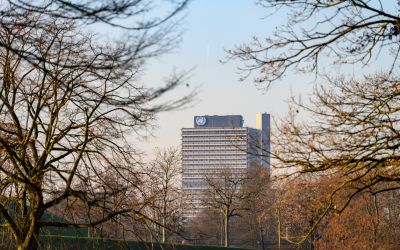Residential solar panels’ efficiency doubled by start-up
Start-up Insolight is developing solar panels with a 36 per cent yield - which could produce twice as much energy as traditional ones.

Start-up Insolight is developing solar panels with a 36 per cent yield - which could produce twice as much energy as traditional ones.
Insolight have created a highly efficient flat photovoltaic system which doubles the generation of energy for the same surface area.
The new solar panels have a 36.4 per cent yield as opposed to 18 to 20 per cent for the currently available panels.
The prototype was validated by the Fraunhofer Institute, an independent lab based in Germany.
It contains a flat and thin optical system made of plastic which guides the sun’s rays to the surface area of high performance cells, made from layers designed to capture differing wave lengths.
Laurent Coulot, CEO of the start-up, said: "It's like a shower: all the water goes down one small drain, there's no need for the drain to cover the entire floor of the shower."
The start-up has created a micro-tracking system which captures 100 per cent of the sun’s rays, thanks to one of EPFL's Innogrants, which go to promising start-ups, in the Laboratory of Applied Photonics Devices.
The system is almost market-ready already.
Mathieu Ackermann, the company's CTO said: "All the components were designed from the start to be easily mass produced."
"Working in industry gave us what we needed to reach our goal, which was to develop solar panels that could be rapidly brought to market at a competitive price."
Florian Gerlich, COO, said: The system will probably be a little more expensive to buy, "but this will be quickly offset by the additional energy that will be generated... The price of solar panels has dropped sharply in recent years, but not enough to produce electricity at a competitive cost."
He added: "For residential systems, solar panels accounted for less than 20% of total installation costs in the United States in 2015. Even if the solar panels were free, this would not always offset the system's cost. Currently, most of the margin earned by solar energy developers comes from subsidies. Yet these subsidies are declining."
Christophe Ballif, Director of EPFL's Photovoltaics Laboratory, said: "Insolight has designed a highly innovative system, and these initial prototypes show an impressive yield in external assessments... They now need to test the limits of their concept, show how a commercial-sized system can perform, and prove the product's economic potential."






